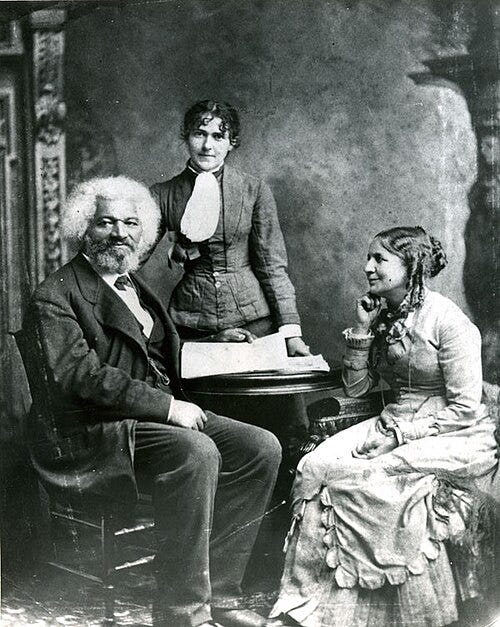Rising from Chains: The Enduring Legacy of Frederick Douglass and the Power of Perseverance

The early 20th century saw a surge in literature aimed at uplifting and educating African American communities, often drawing on the lives of pioneering figures to inspire resilience and achievement. One such work is Silas Xavier Floyd's 1920 collection, Short Stories for Colored People Both Old and Young, which features concise, motivational biographies and tales. The following chapter, dedicated to Frederick Douglass, highlights his extraordinary journey from enslavement to becoming a towering icon of American history. It draws from contemporary accounts, including Douglass's own autobiography, to emphasize themes of perseverance, eloquence, and divine providence. This piece not only commemorates Douglass's legacy but also serves as a call to young readers to emulate his "grit" in pursuing excellence. Below is a full transcript of the chapter.1
FREDERICK DOUGLASS.
In 1893 the World's Columbian Exposition, or World's Fair, was held in Chicago in commemoration of the four hundredth anniversary of the discovery of America. A negro man, the Hon. Frederick Douglass, attended that exposition and delivered an address on negro day. Speaking of this great man's visit the Advance, one of Chicago's great religious papers, said:
“It was fine to see at the Congress on Africa the tall form and magnificent head of the grand old man, Frederick Douglass, now seventy-five years of age, perfectly erect, kindly, majestic, the ‘ancient fires of inspiration welling up through all his being yet’; affable to all; finding it still to be as natural to be eloquent as to speak at all; sympathetic to the core with the people of his own race, yet none the less loyal to the common interests of all the people of his country; neither blind to the obstacles in their path and the cruel social injustice and meanness to which they are often exposed, nor, on the other hand, unmindful of the friends they have in the South as also in the North, or above all to the over-shining care and purpose of God Himself, with the ‘far-off divine intent’ that so clearly takes in the future of both the American and African continents. Few Americans have had a more conspicuously providential mission than Frederick Douglass. And hardly anything in this remarkable congress was more eloquent or more convincing than his personal presence.”
Frederick Douglass was born a slave, and his life as a slave was one of peculiar hardship. Of it he himself says in his autobiography:
“I suffered little from any punishment I received, except from hunger and cold. I could get enough neither of food or clothing, but suffered more from cold than hunger. In the heat of summer or the cold of winter alike, I was kept almost in a state of nudity— no shoes, jackets, trousers, or stockings— nothing but a coarse tow linen shirt reaching to the knee. That I wore night and day. In the day time I could protect myself by keeping on the sunny side of the house, and in bad weather in the corner of the kitchen chimney. The great difficulty was to keep warm at night. I had no bed. The pigs in the pen had leaves, and the horses in the stable had straw, but the children had nothing. In very cold weather I sometimes got down the bag in which corn was carried to the mill and got into that. My feet have been so cracked by frost that the pen with which I am writing might have been laid in the gashes.” With regard to his food he said that he often disputed with the dogs over the crumbs that fell from his master's table.
Now this man, born so lowly and surrounded by such circumstances, turned out to be in the course of time by hard work and self-application one of the most influential American citizens and one of the greatest orators that this country has ever known. Among other high offices of trust and responsibility, he was once marshal of the District of Columbia, recorder of deeds of the District of Columbia, and United States minister to Hayti.
He died February 20th, 1895, at his home in Anacostia, D. C., at the age of seventy-seven years. A monument to his memory has been erected in Rochester, N. Y., where he once lived.
What Frederick Douglass made of himself is possible for any American boy with grit. Every boy and girl in America should read the life of this pre-eminent negro and strive to emulate his virtues. His memory is worthy to be honored to the last day of time.
Silas Xavier Floyd, Short Stories For Colored People Both Old And Young: Entertaining, Uplifting, Interesting, (Washington DC: Austin Jenkins Co., 1920), 124-127, https://archive.org/details/shortstoriesforc00floyrich/mode/2up.

